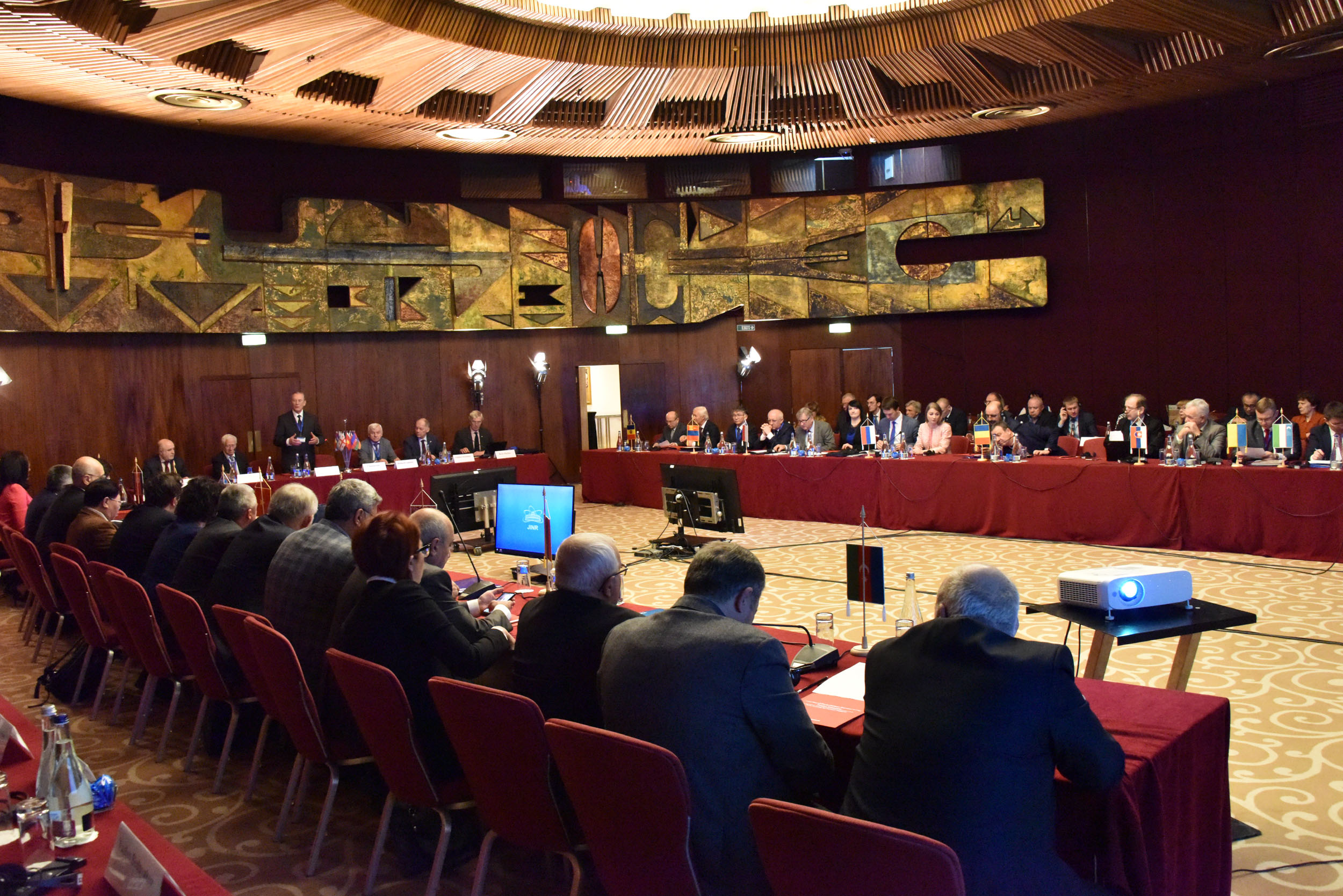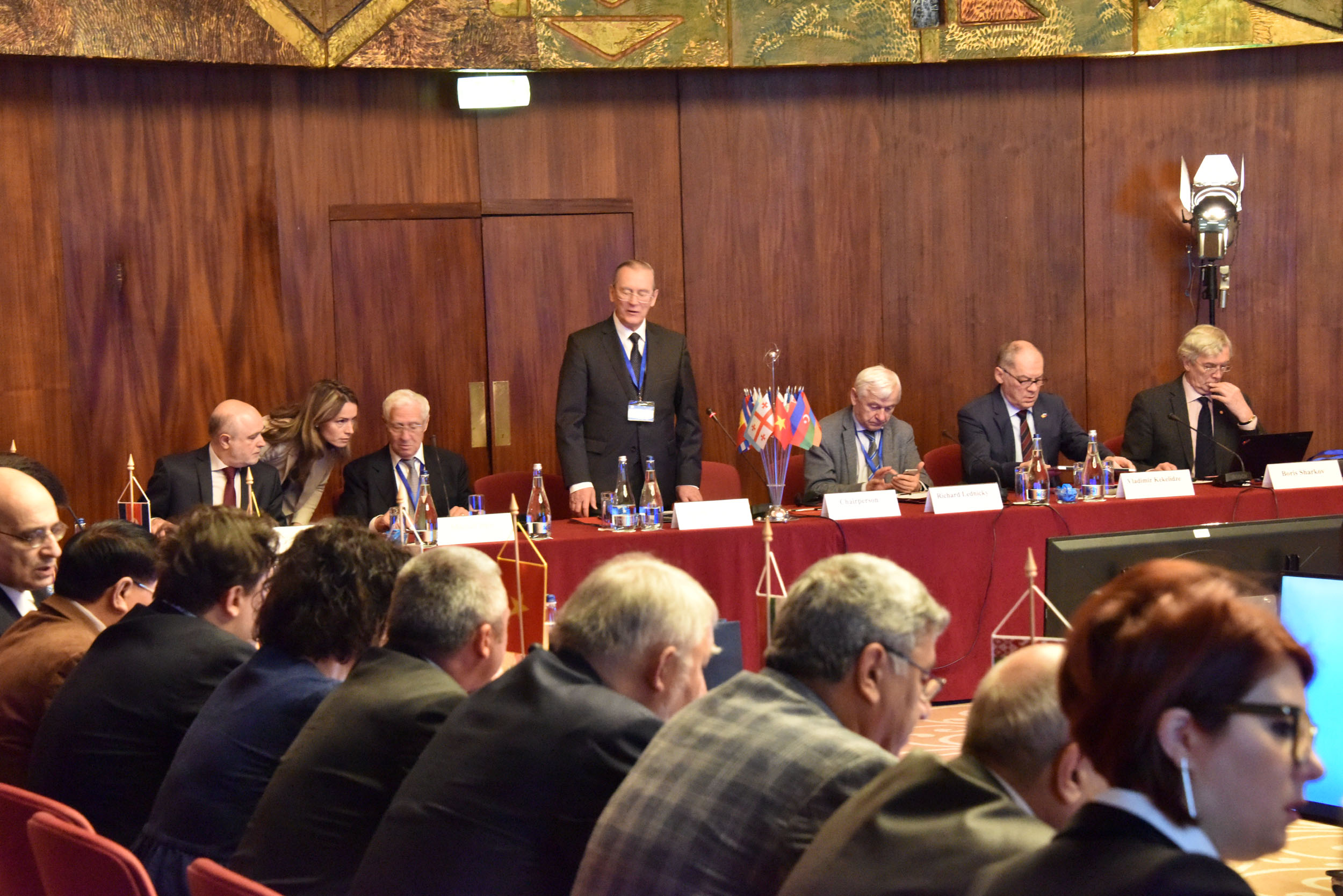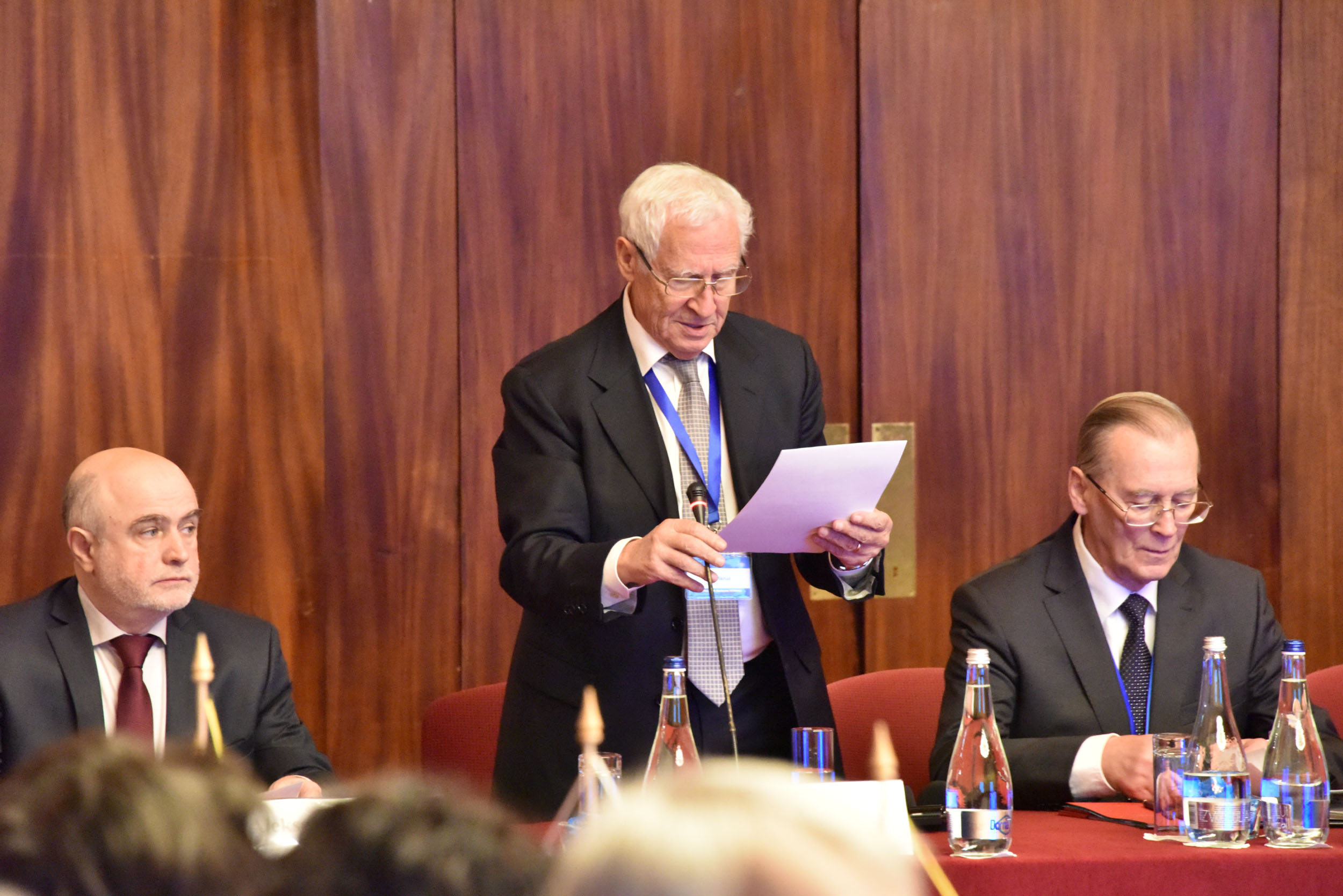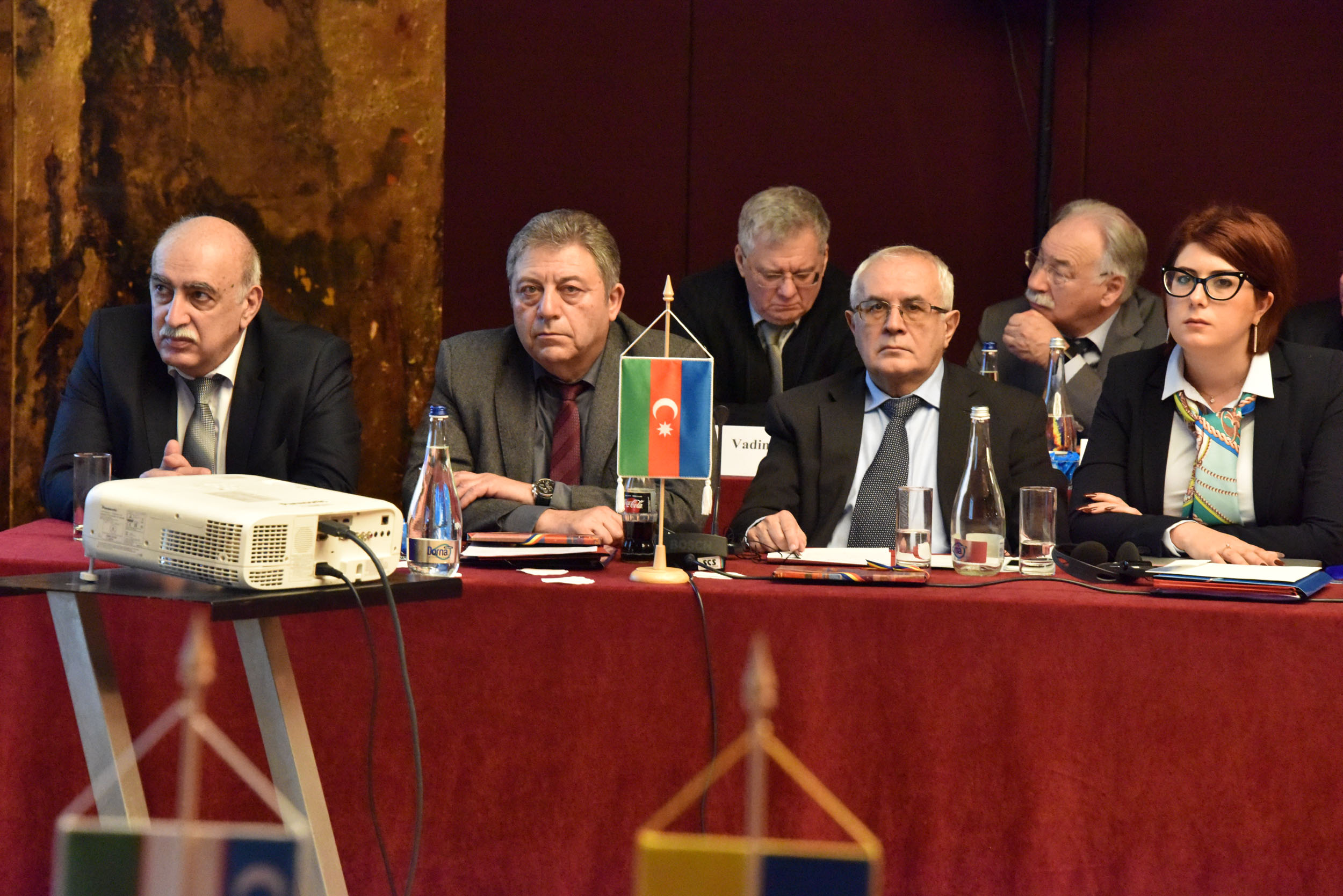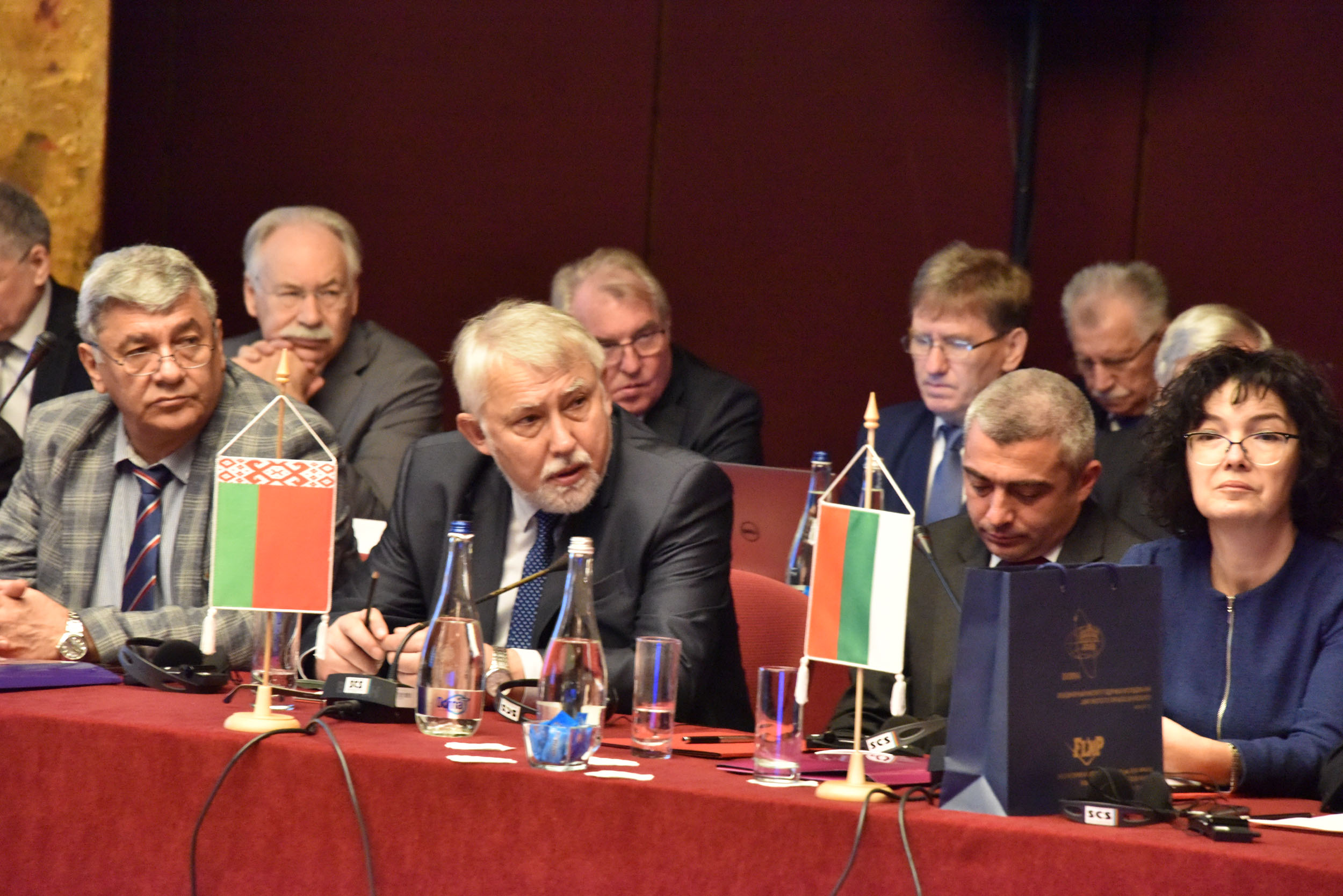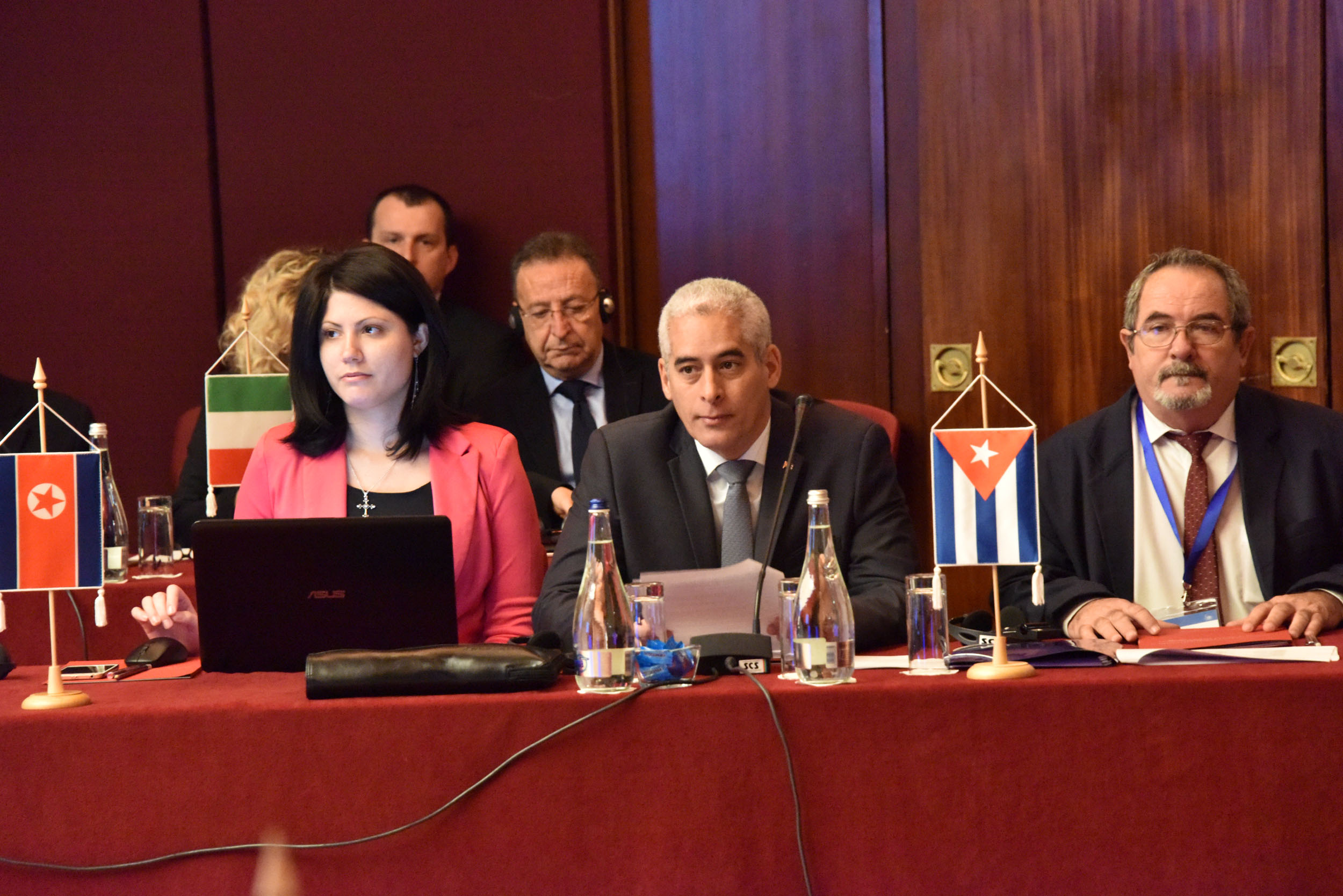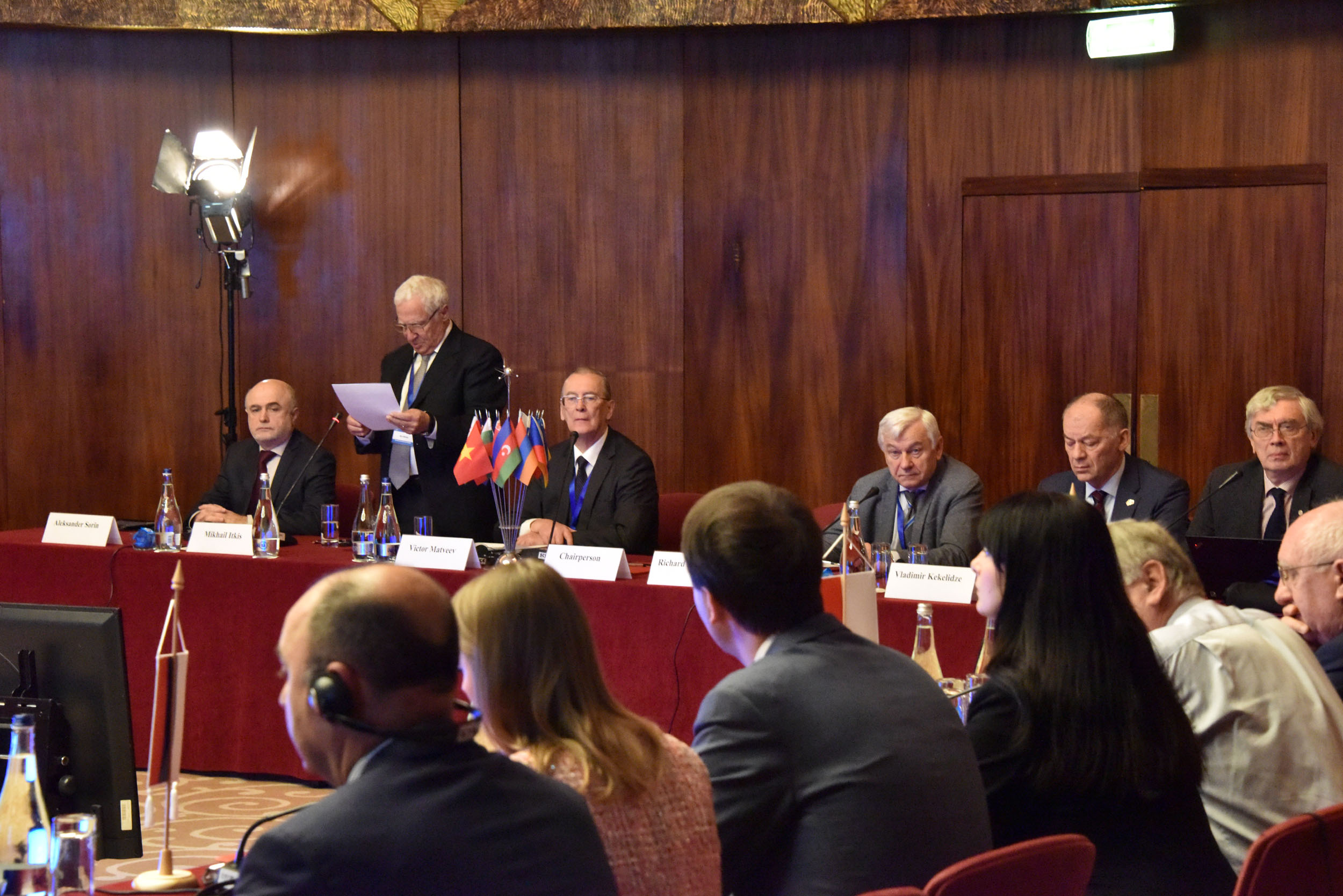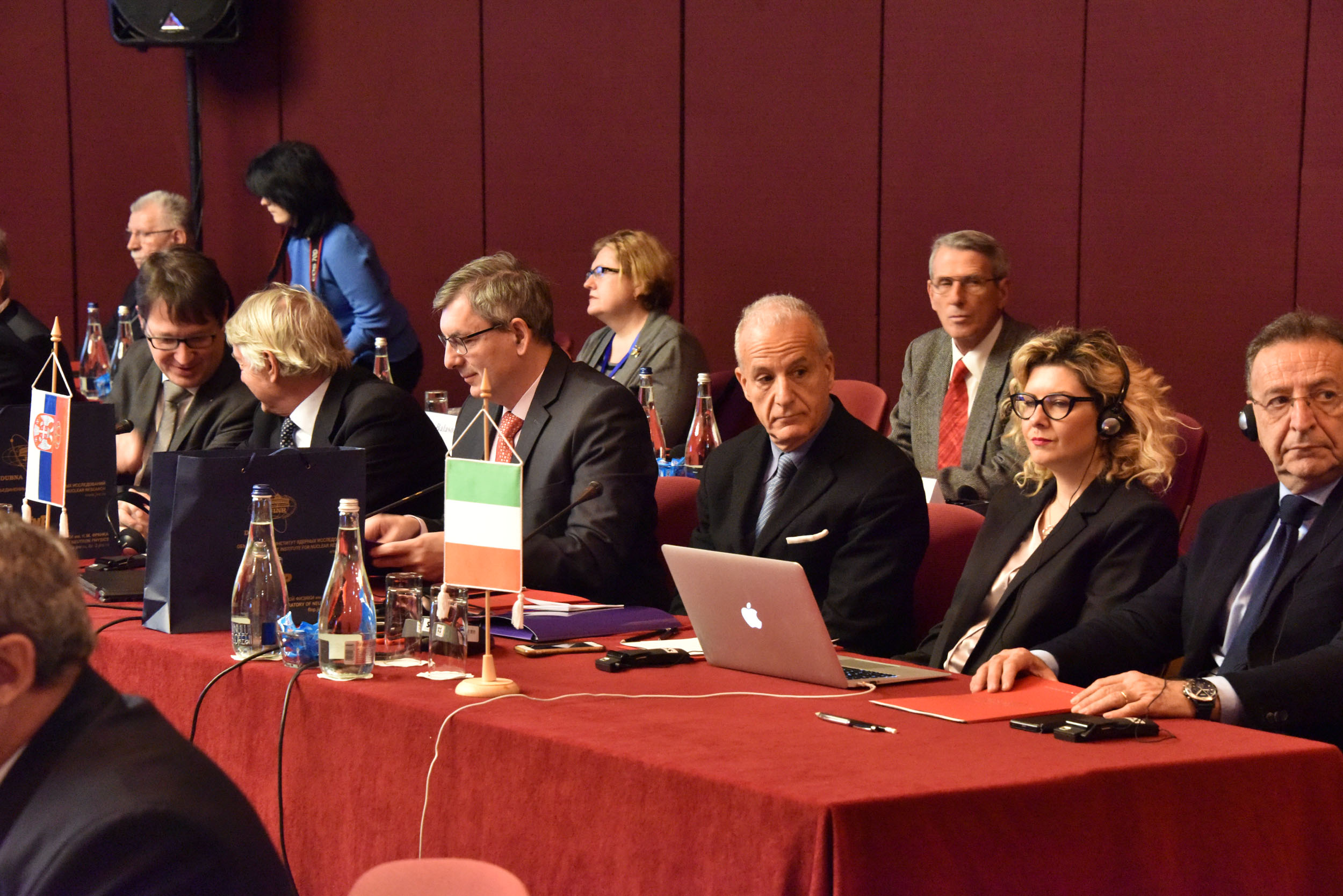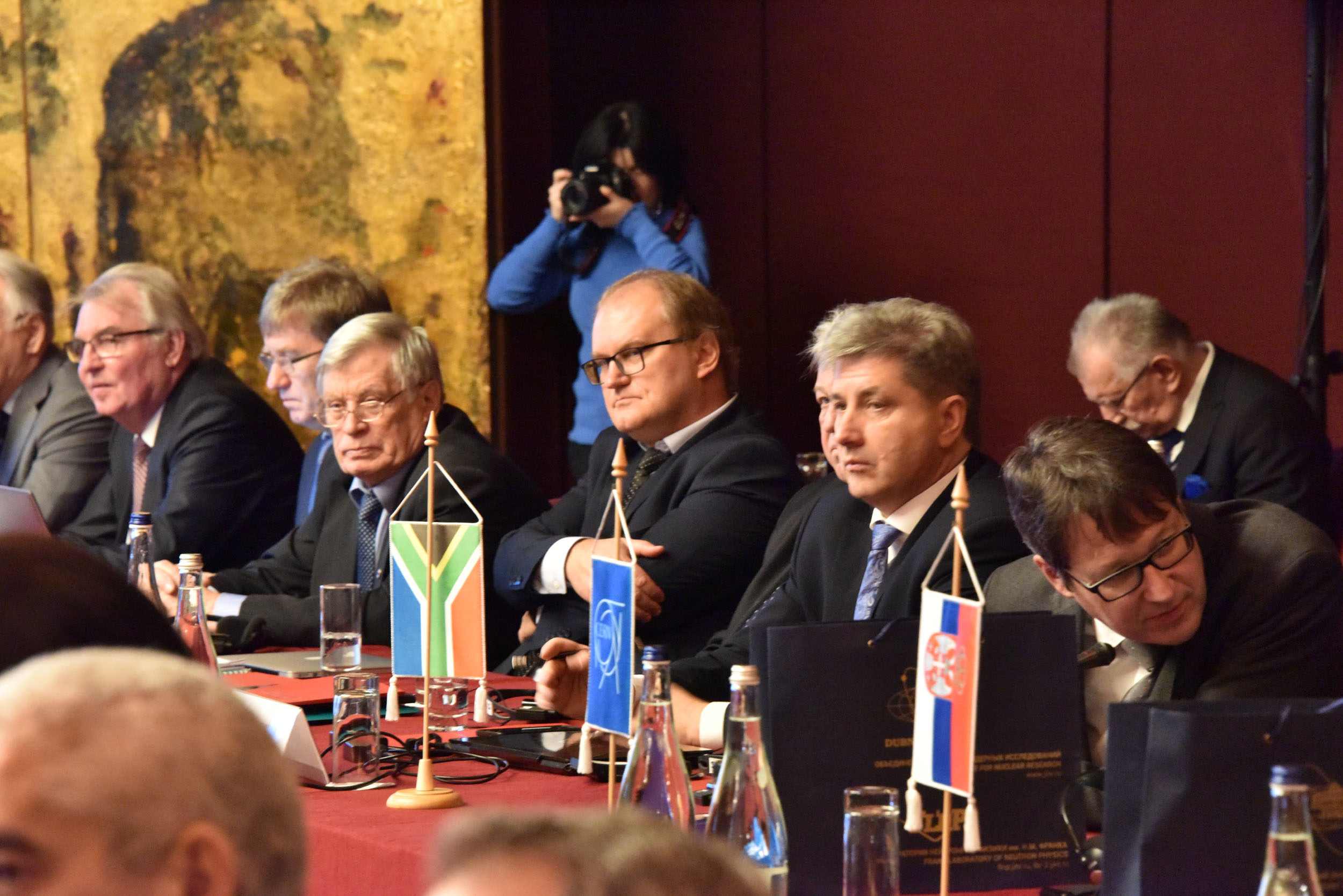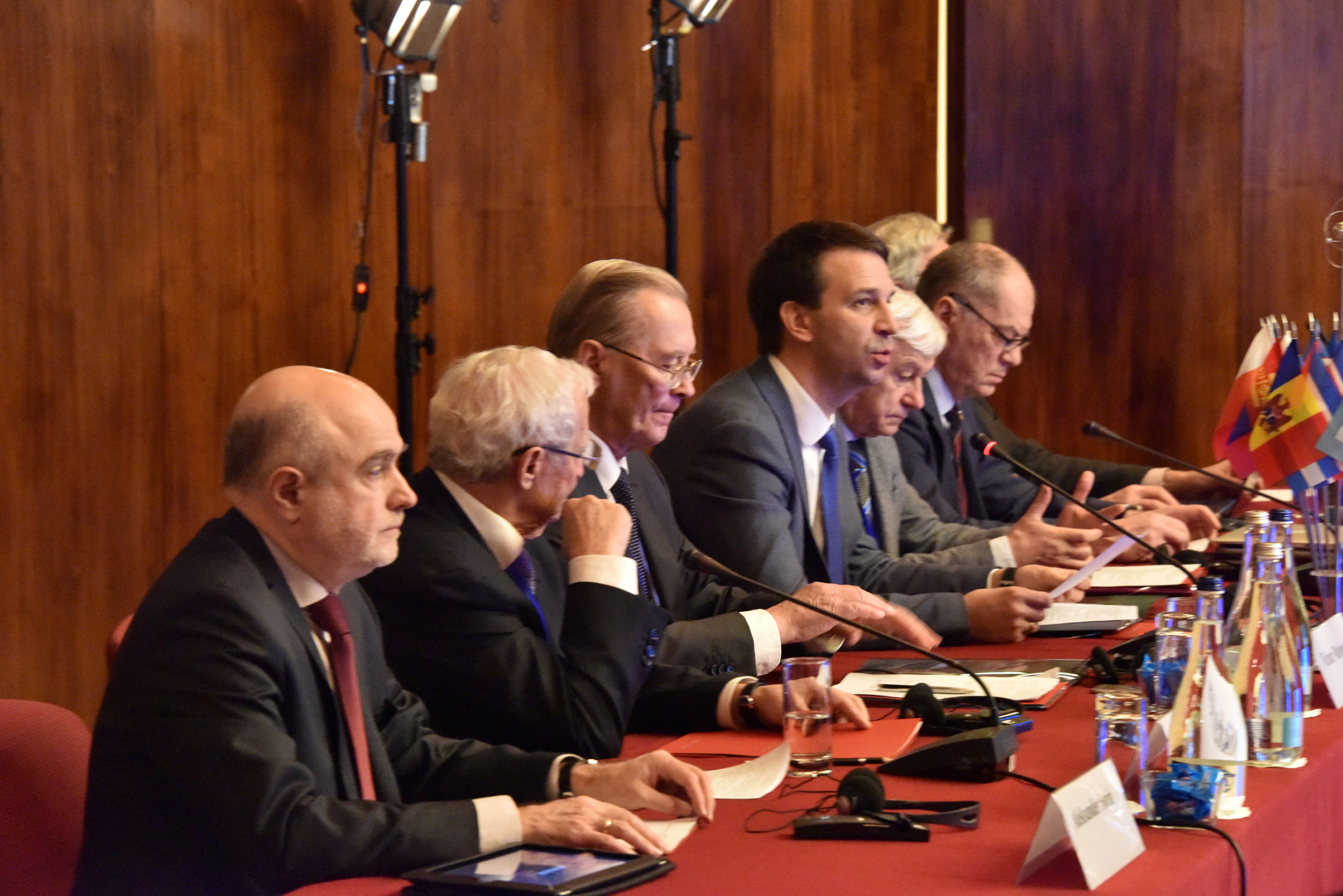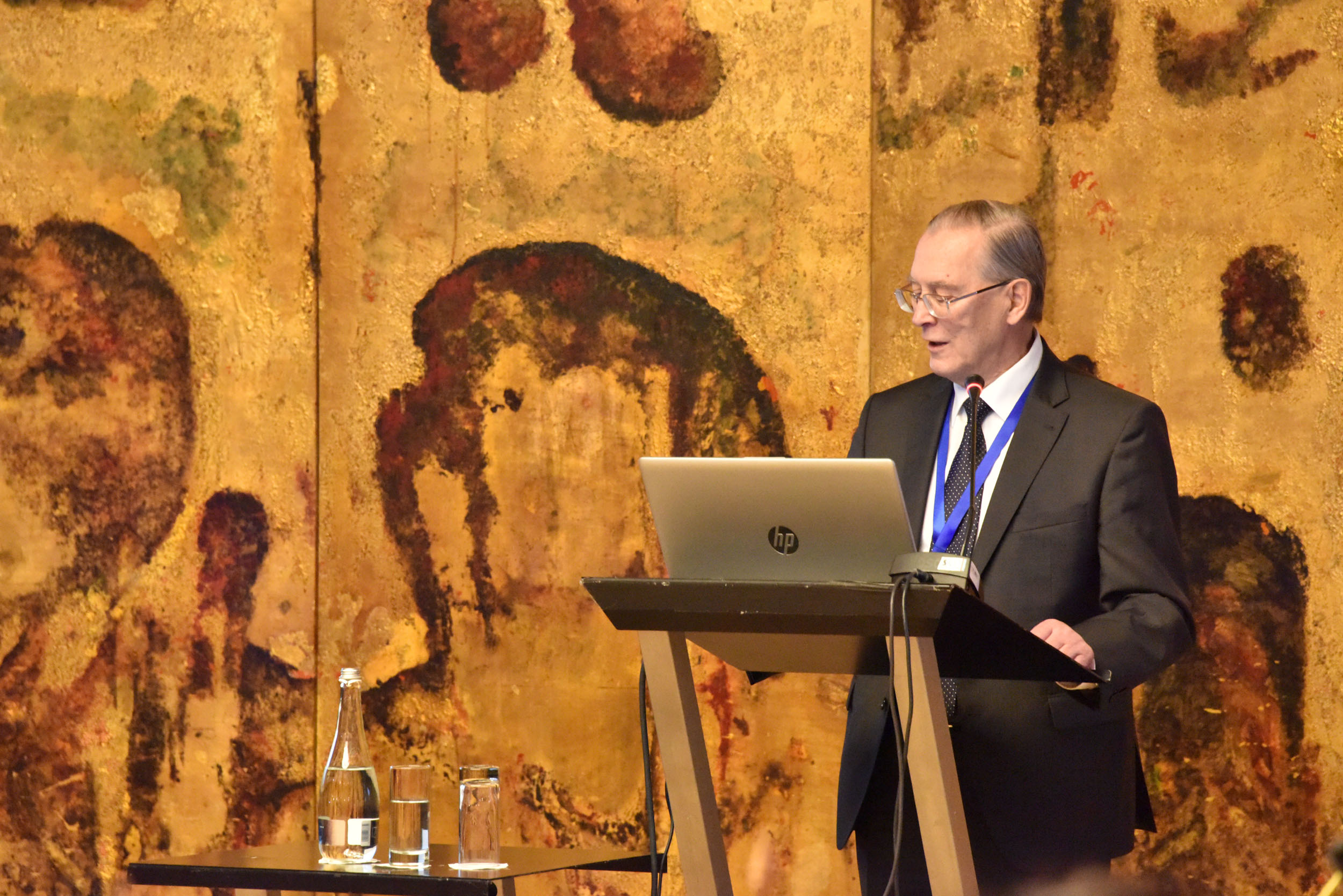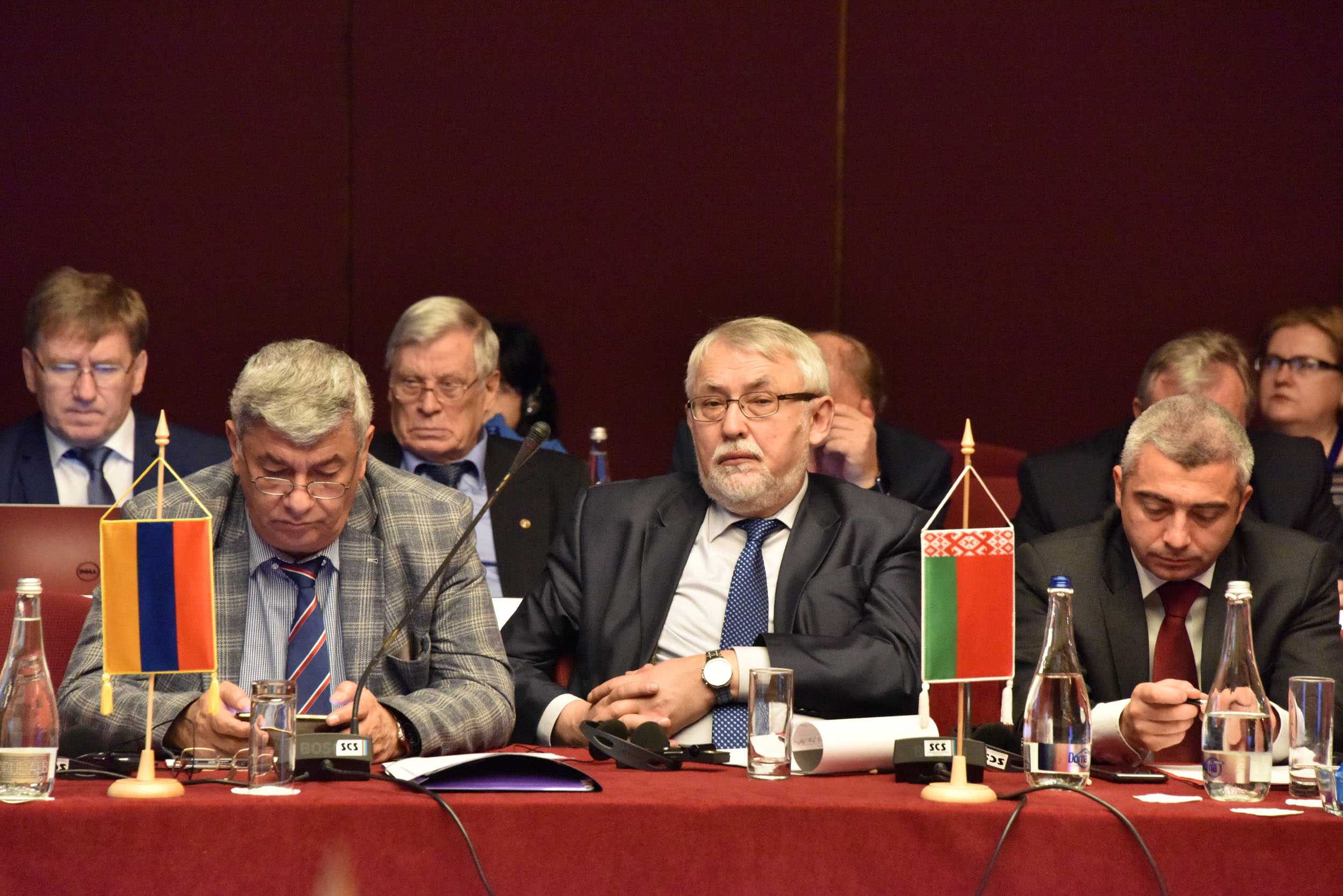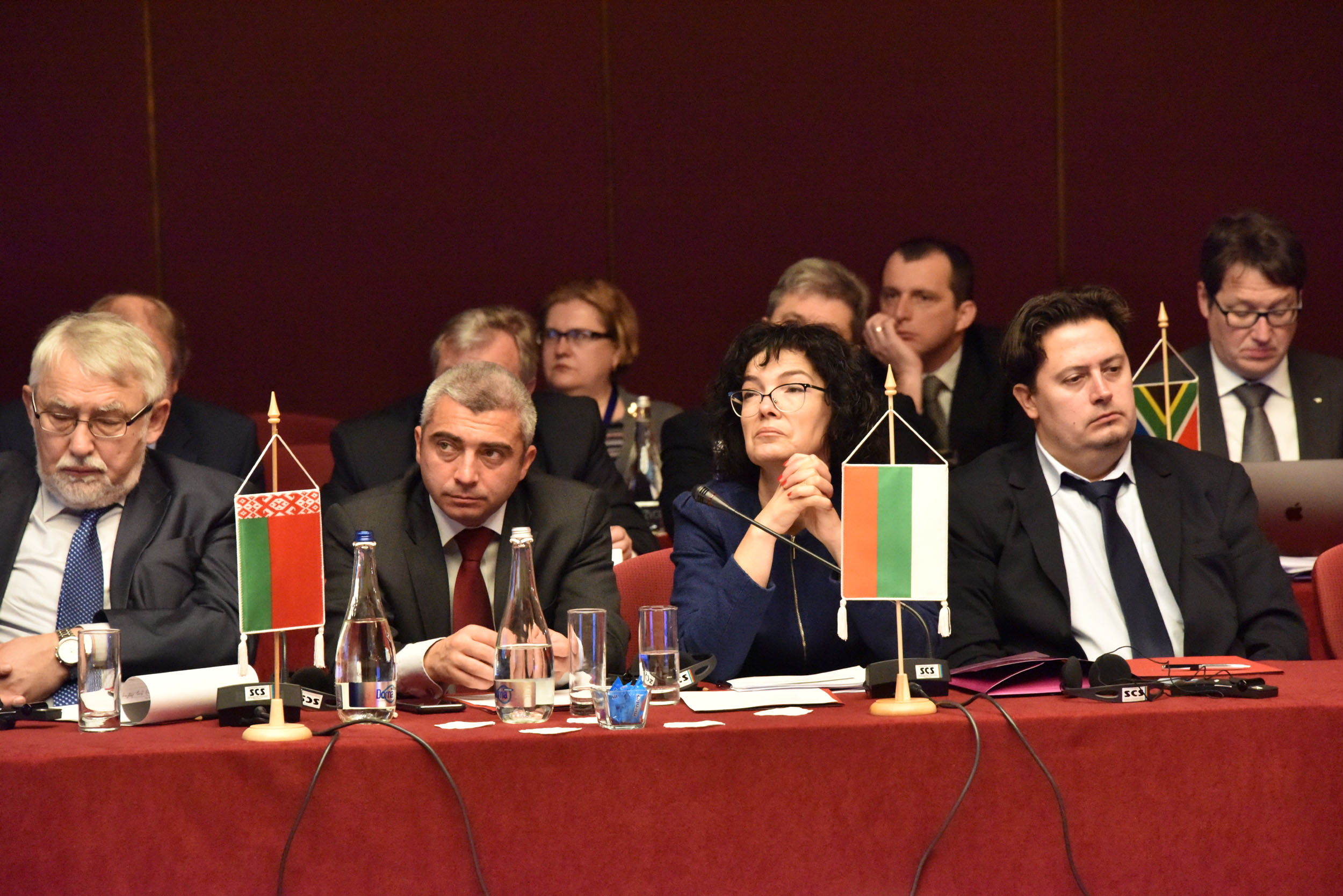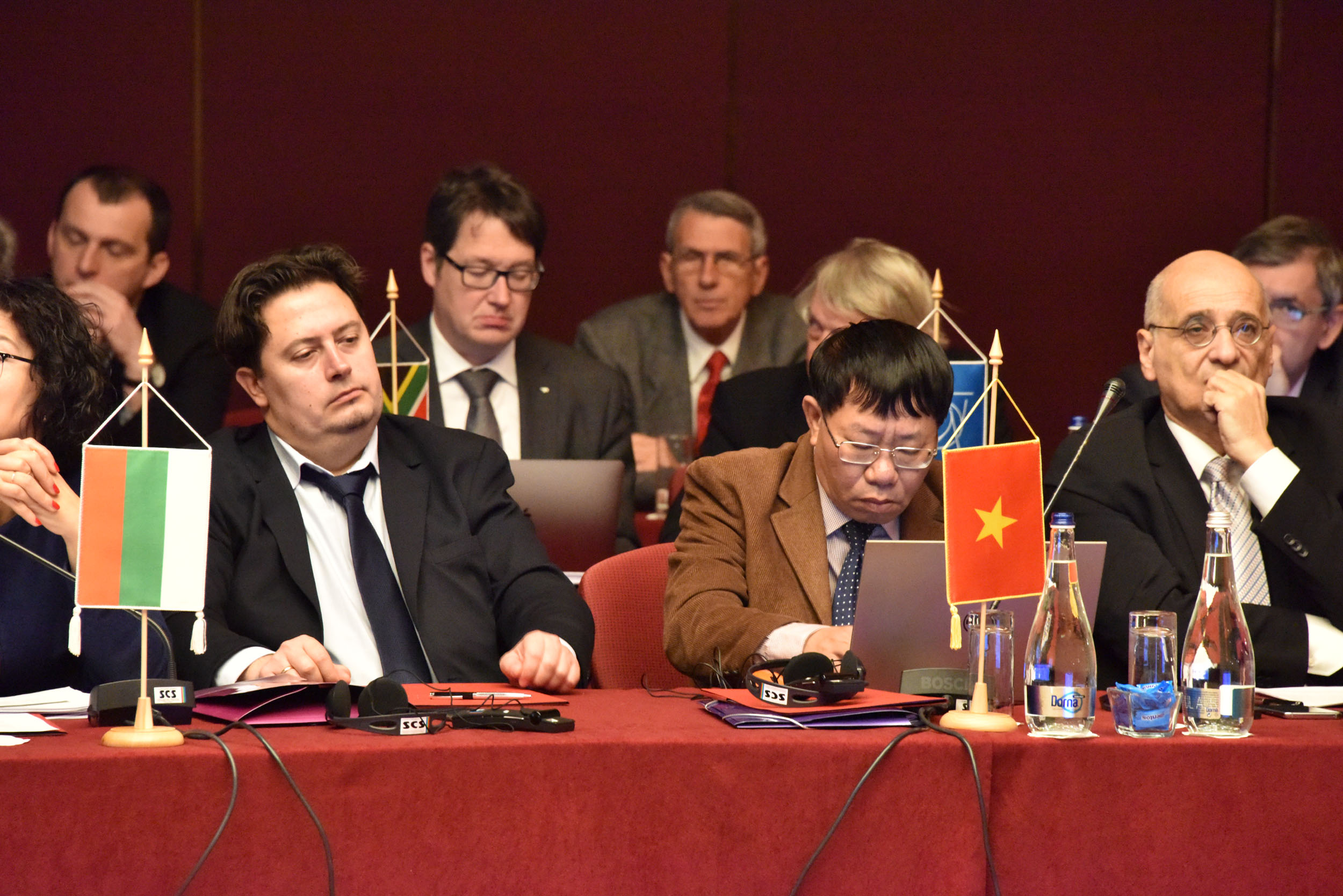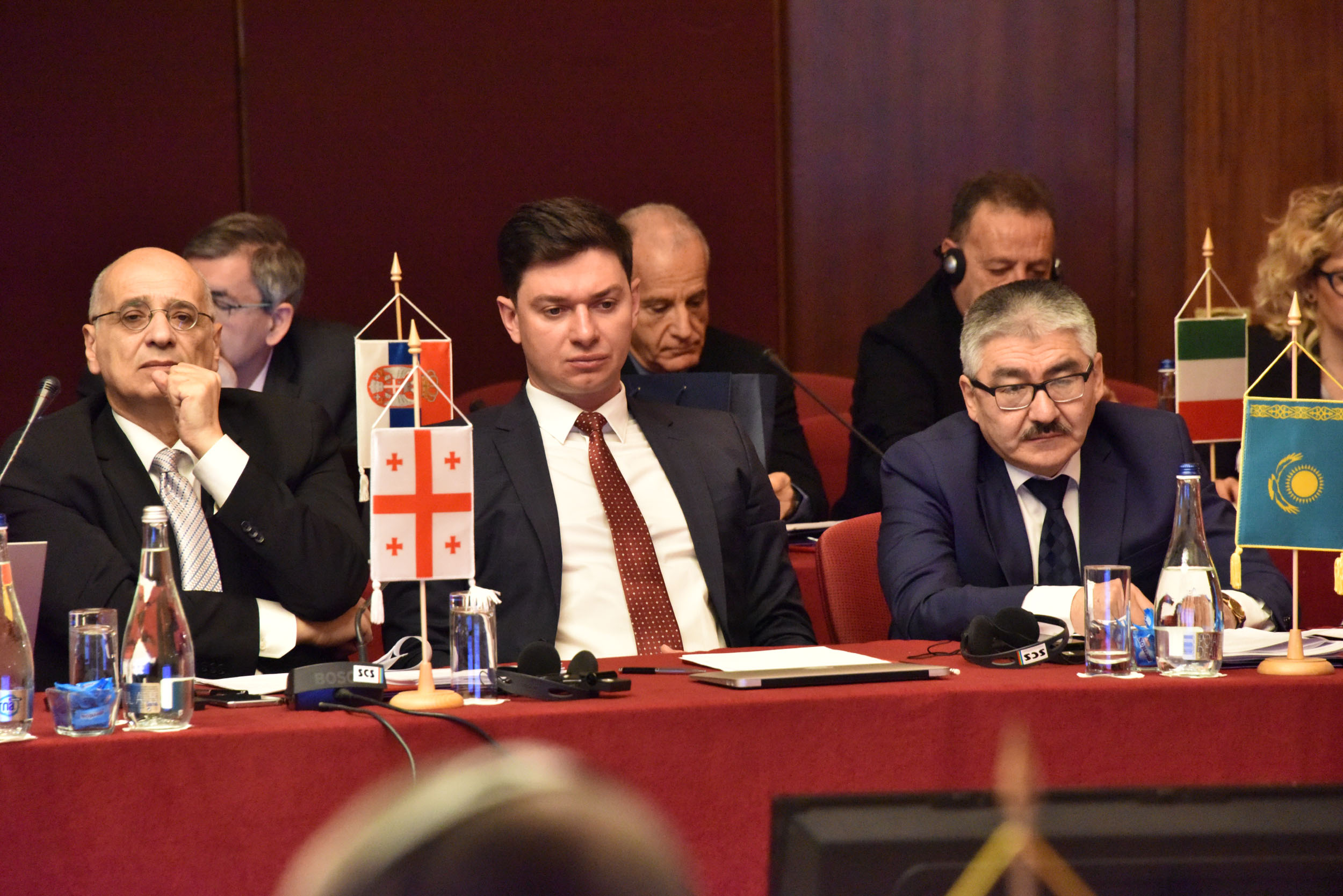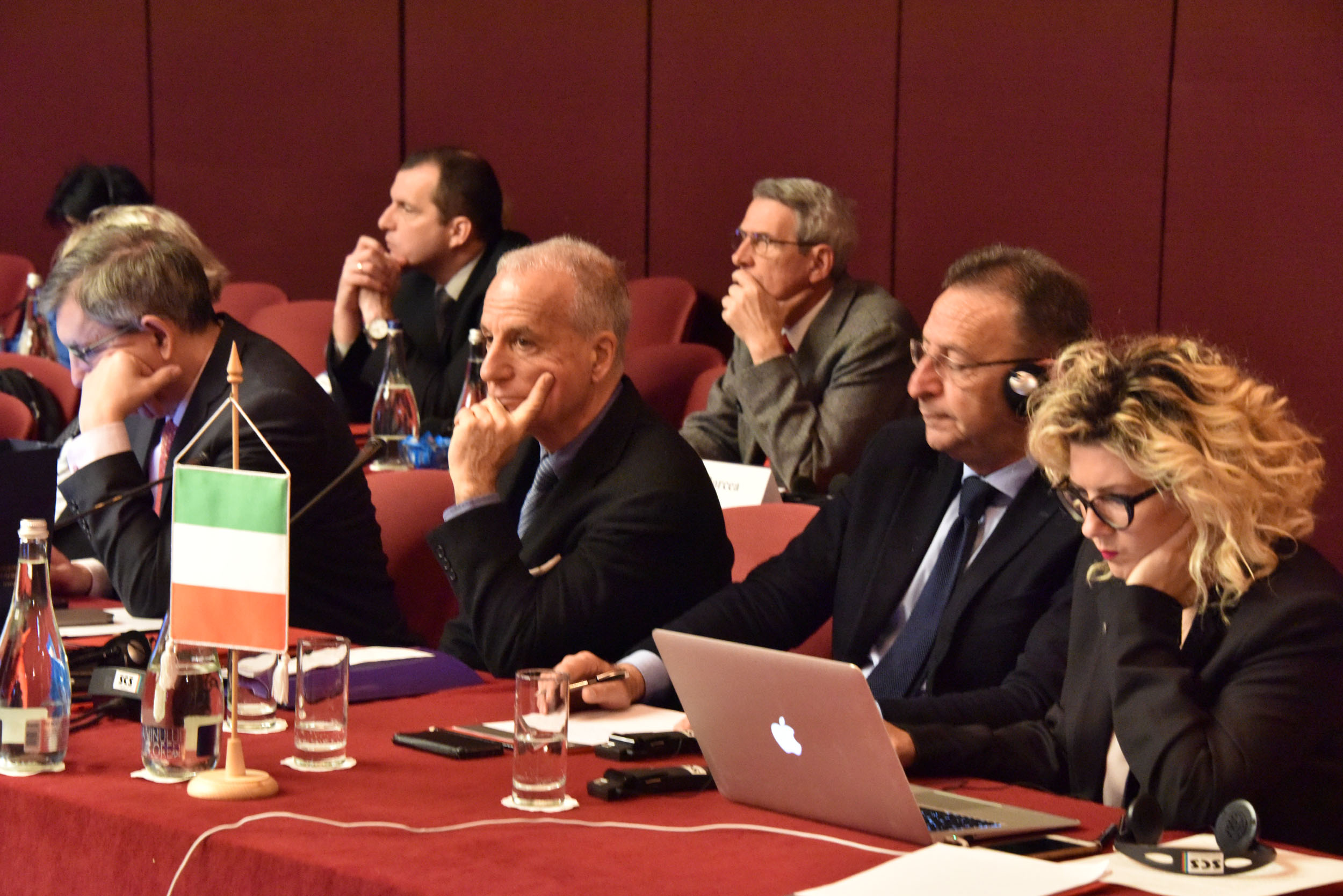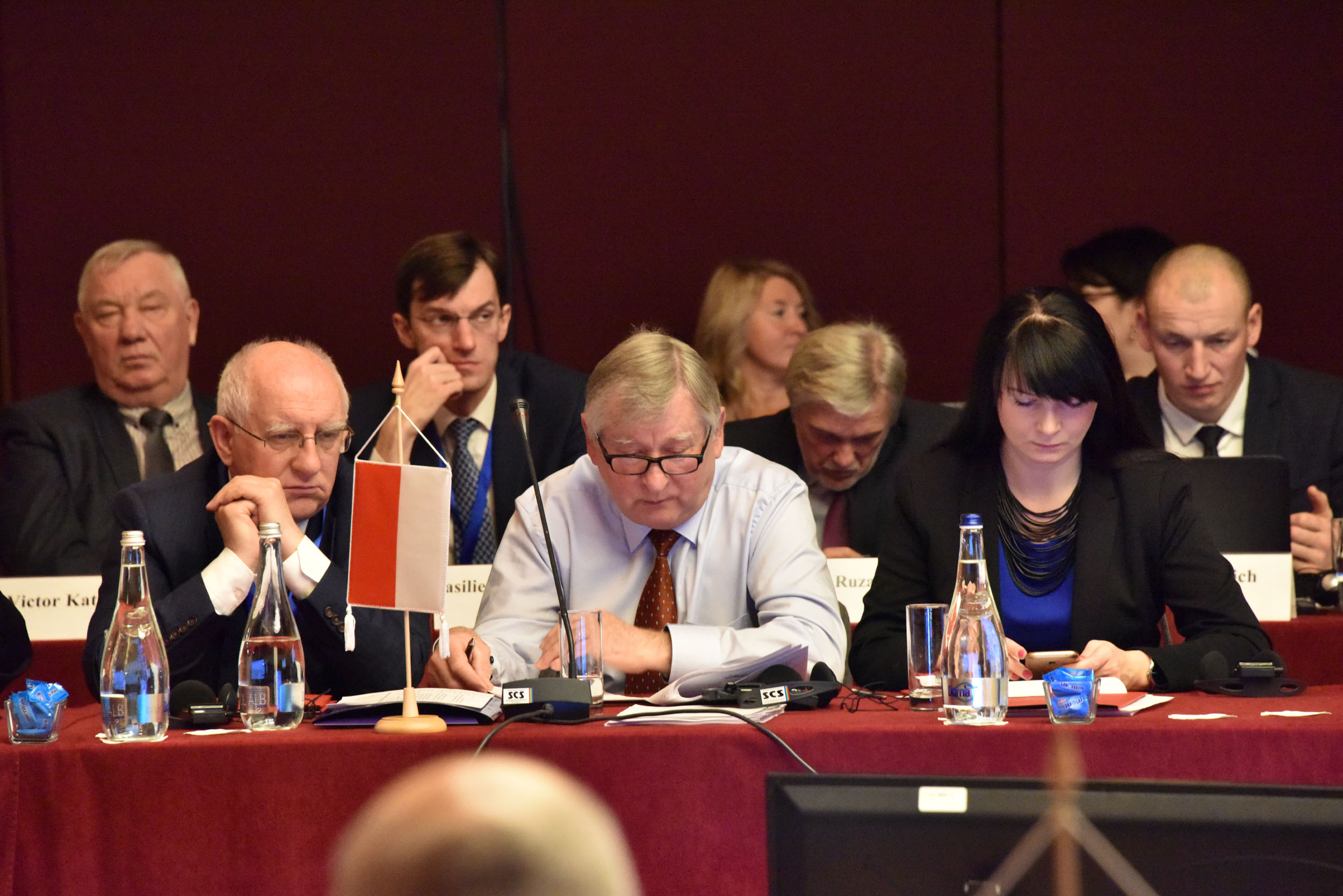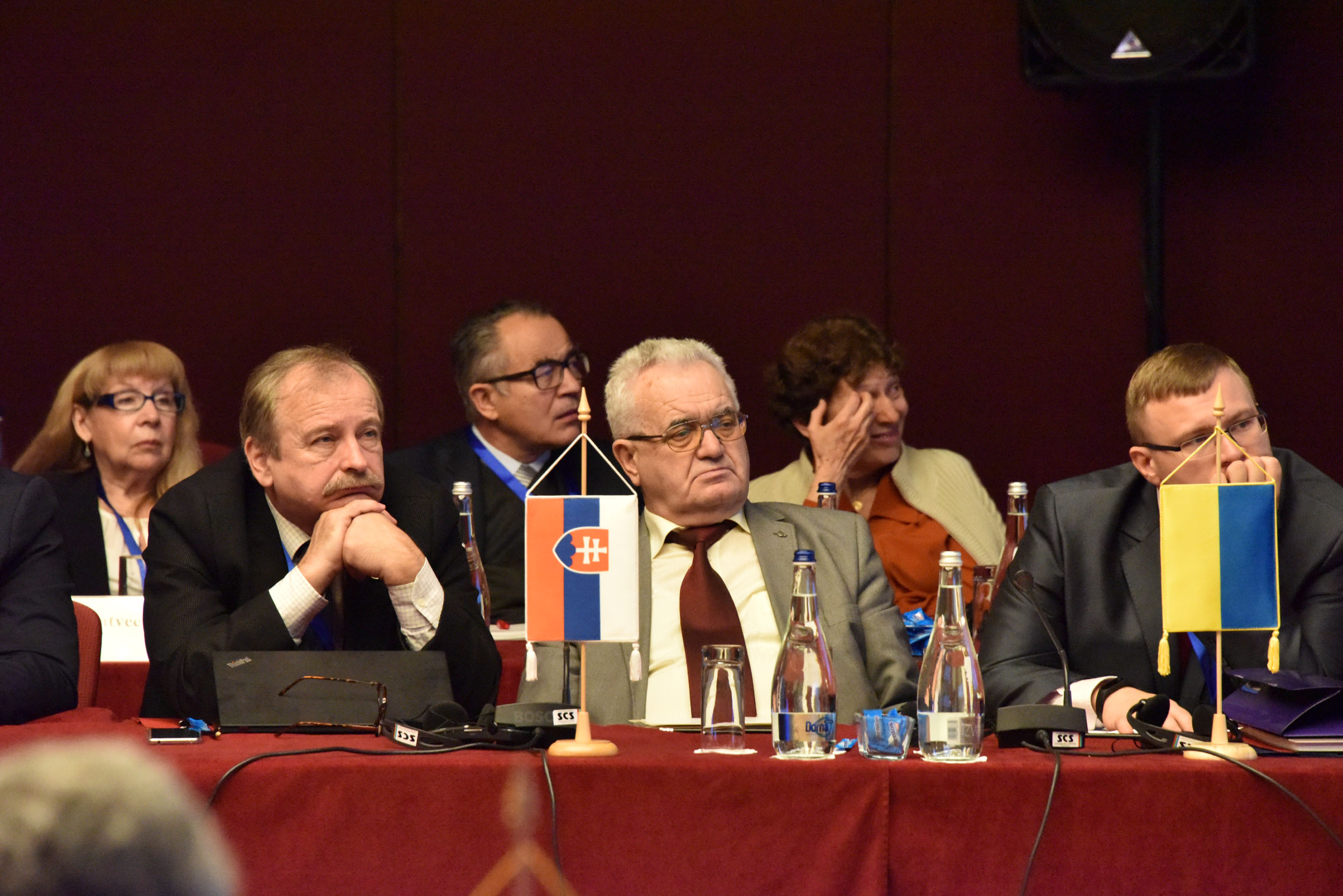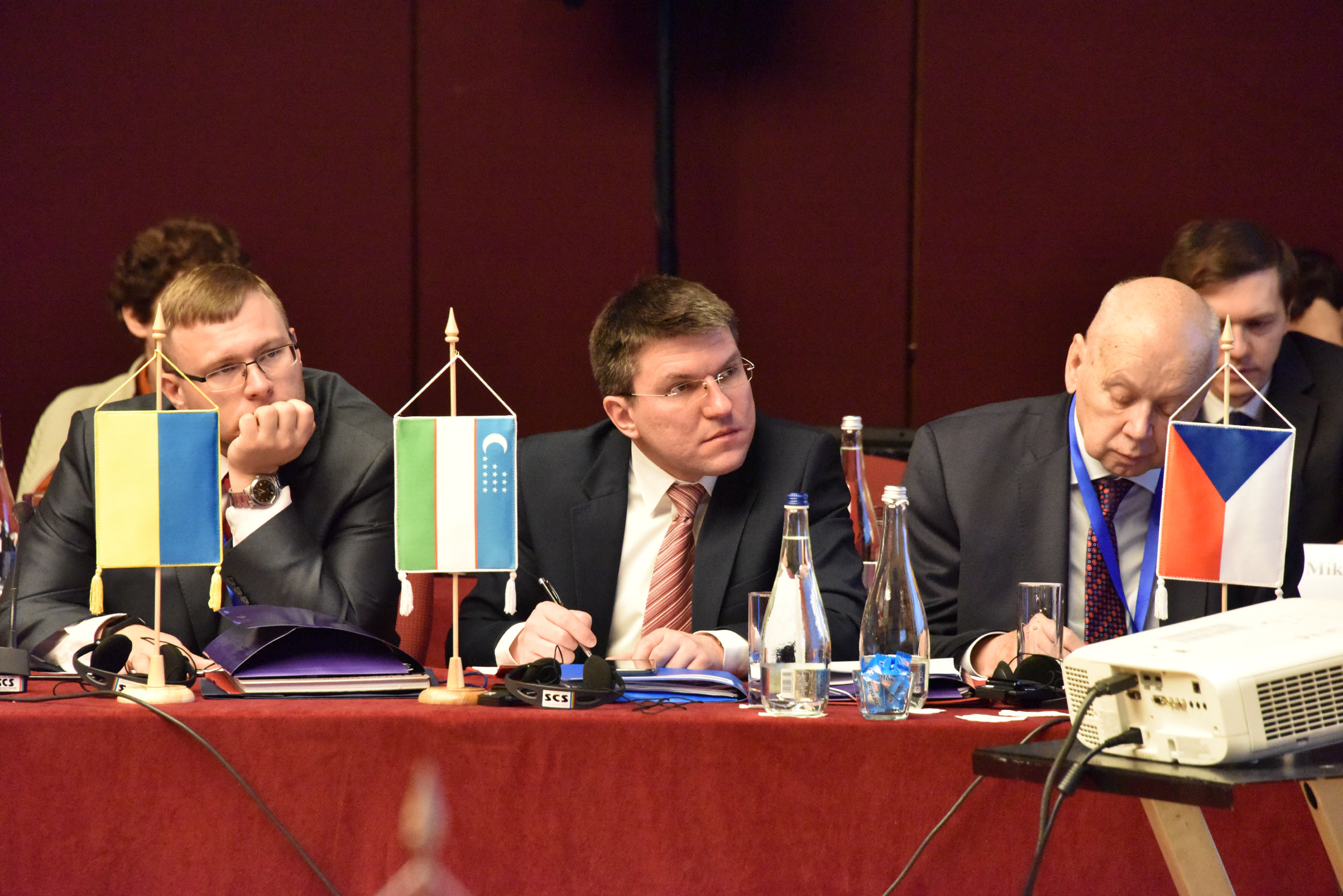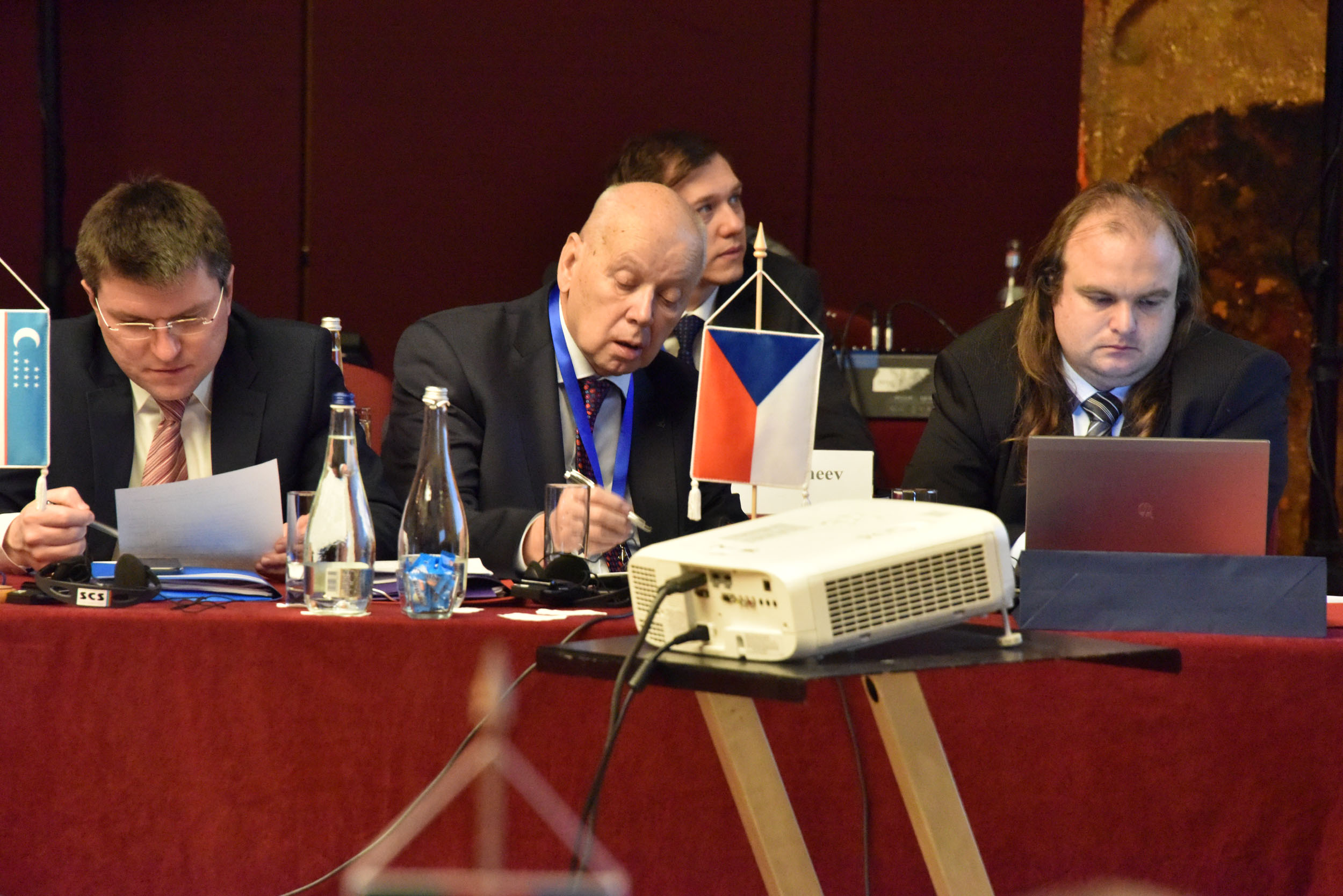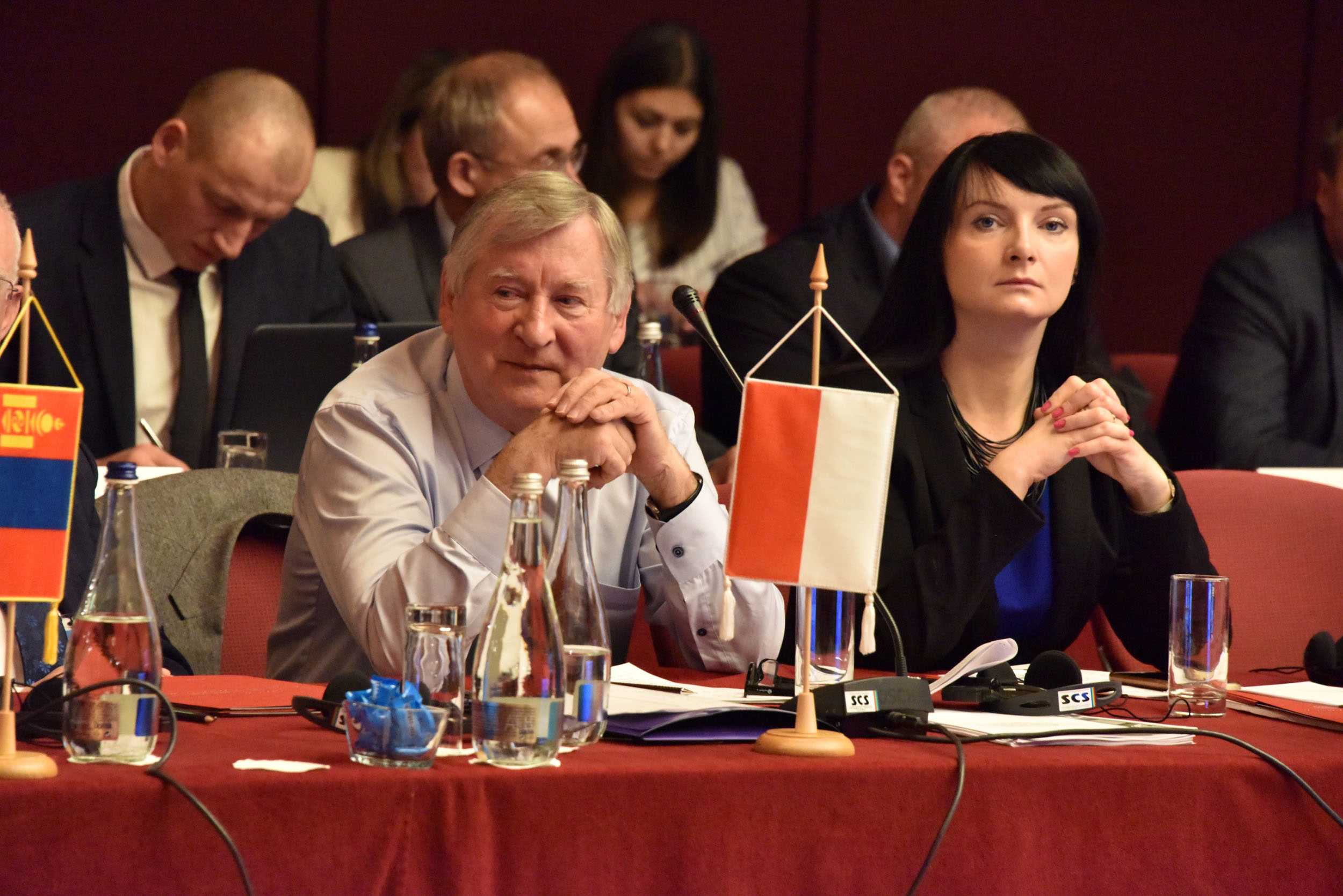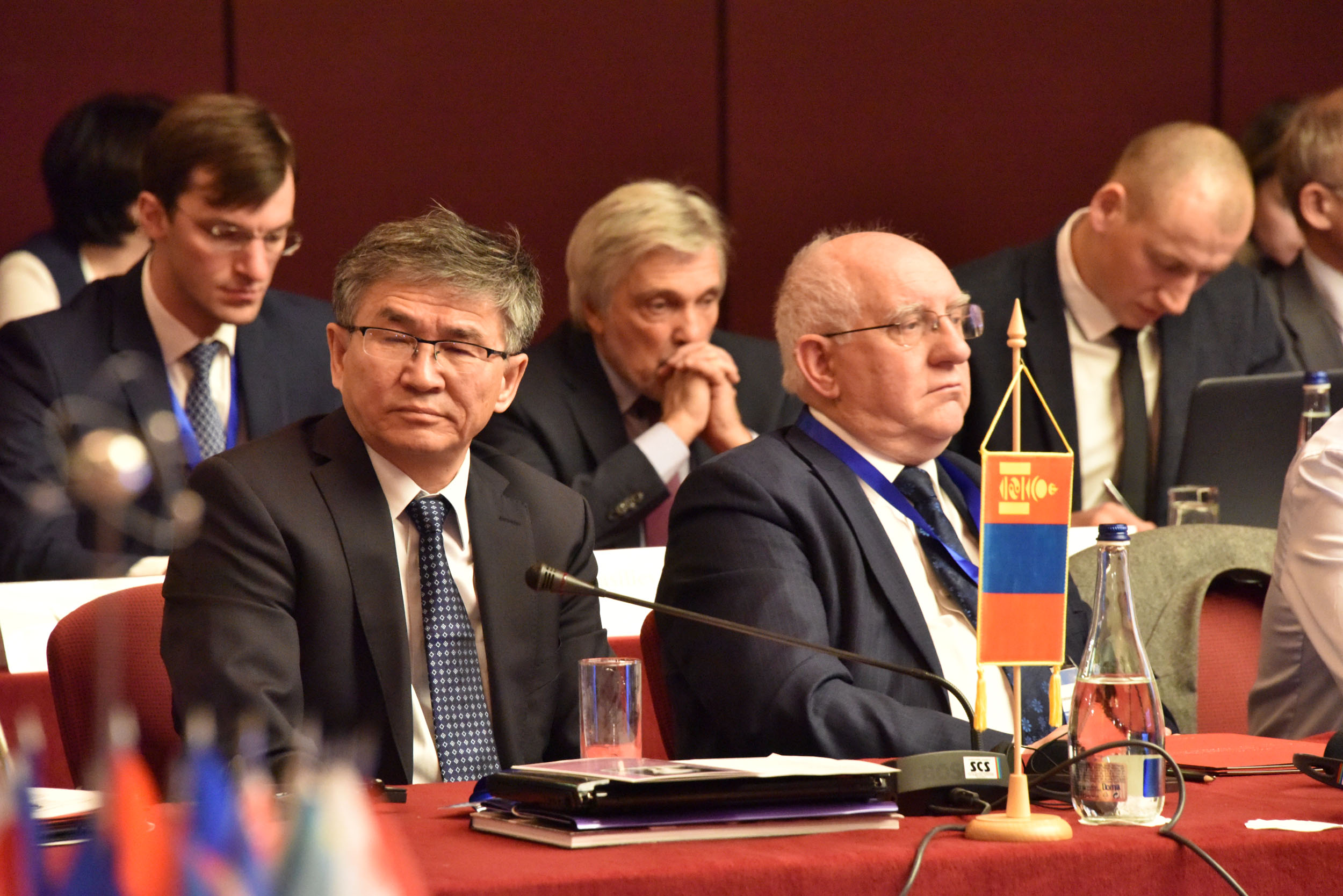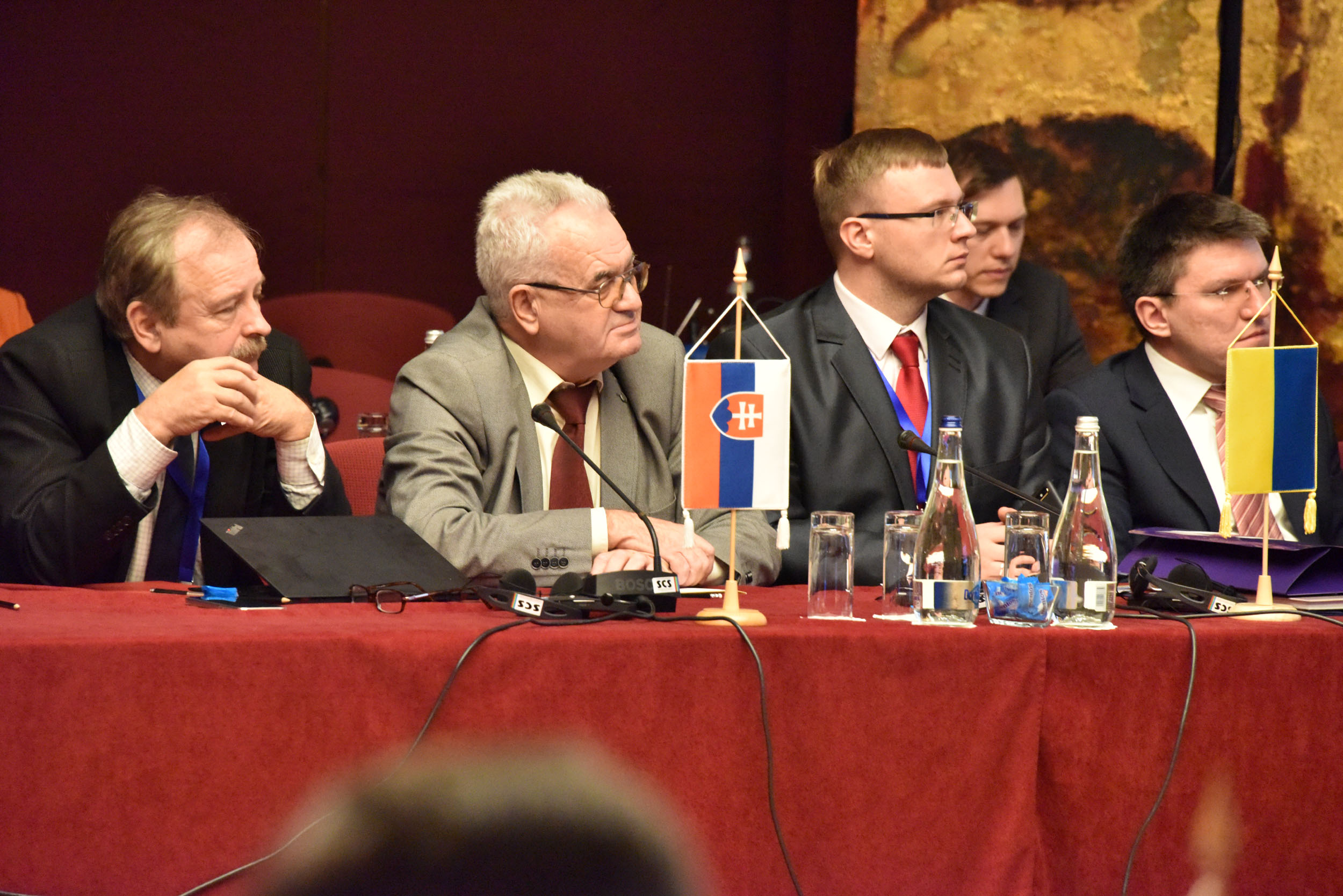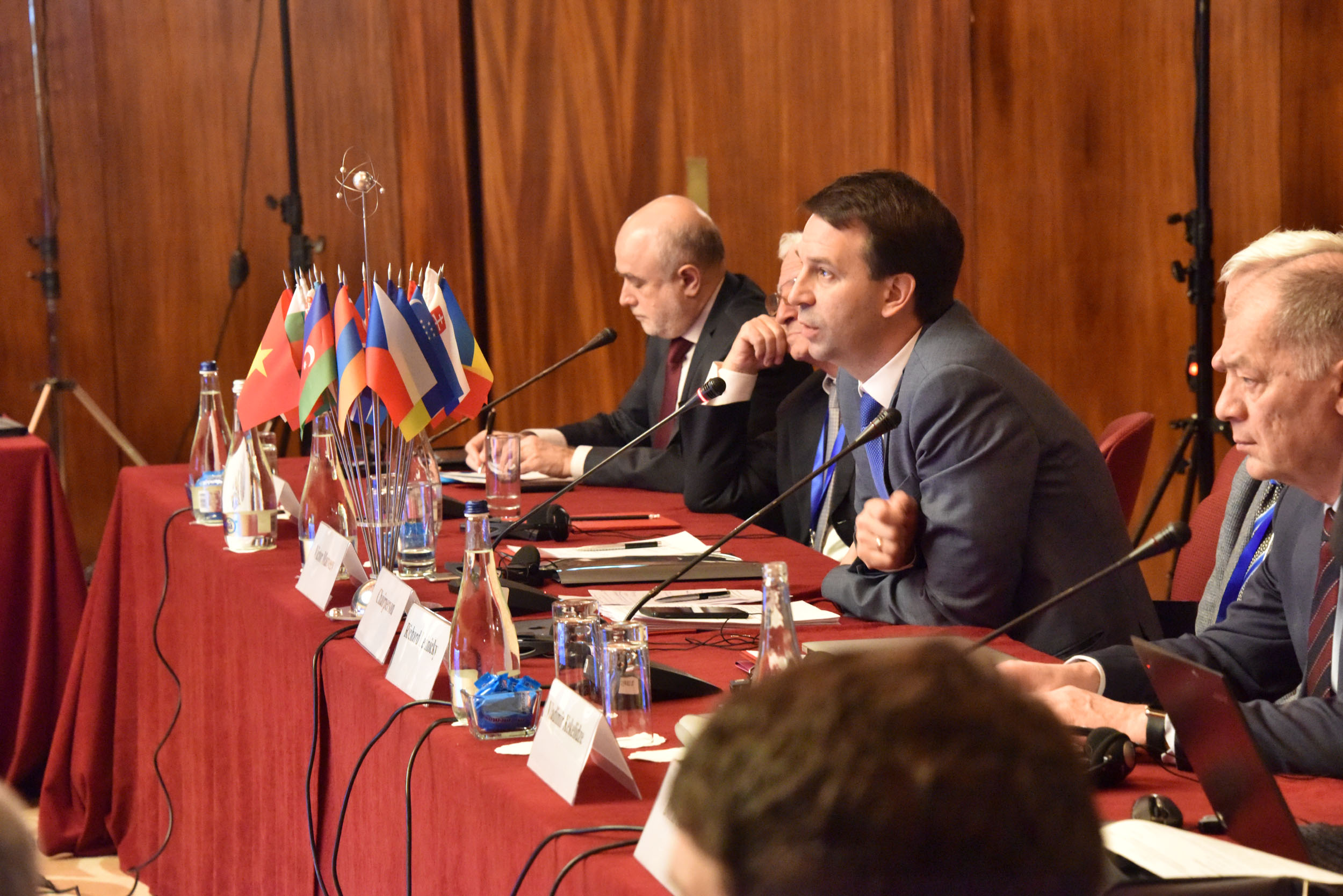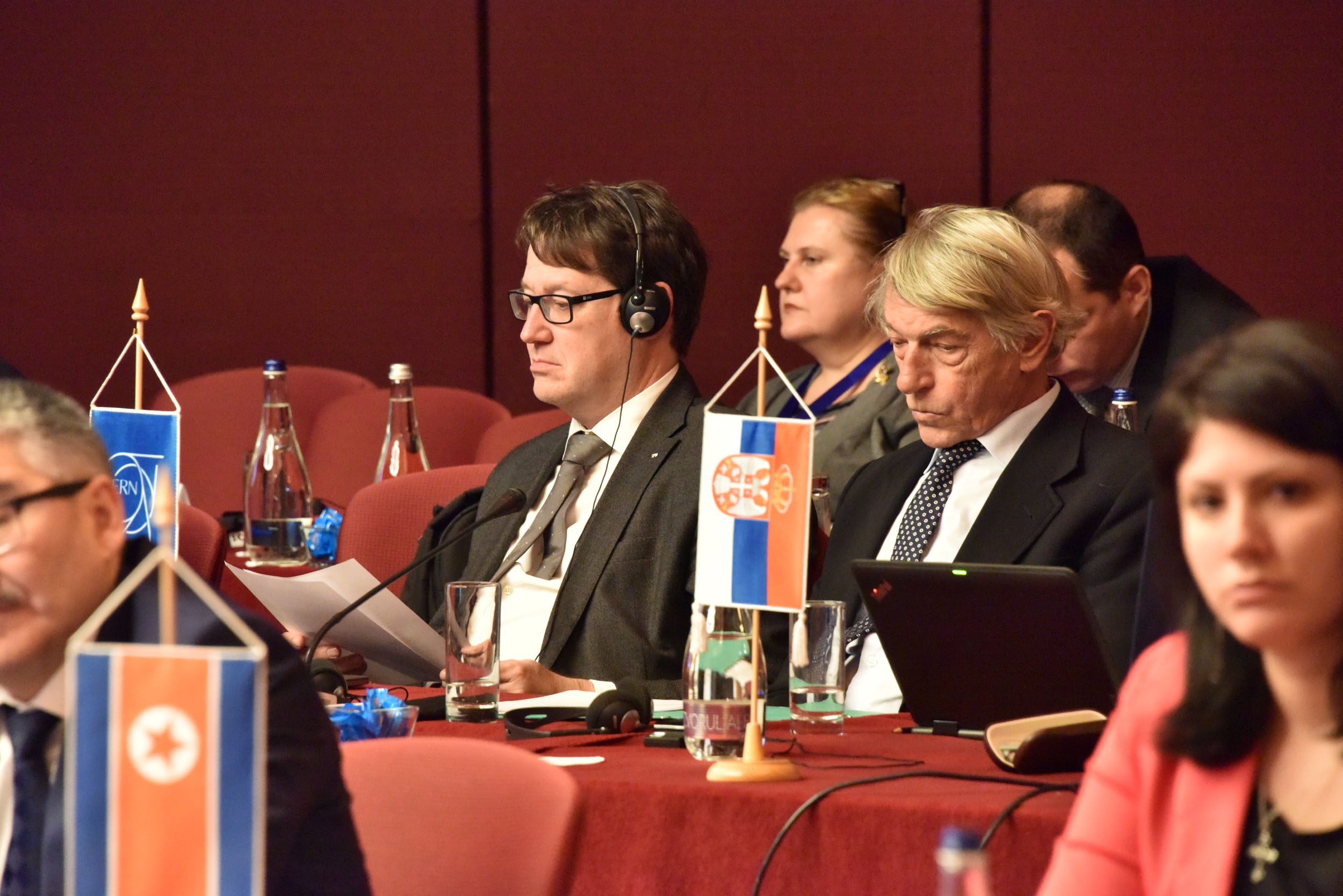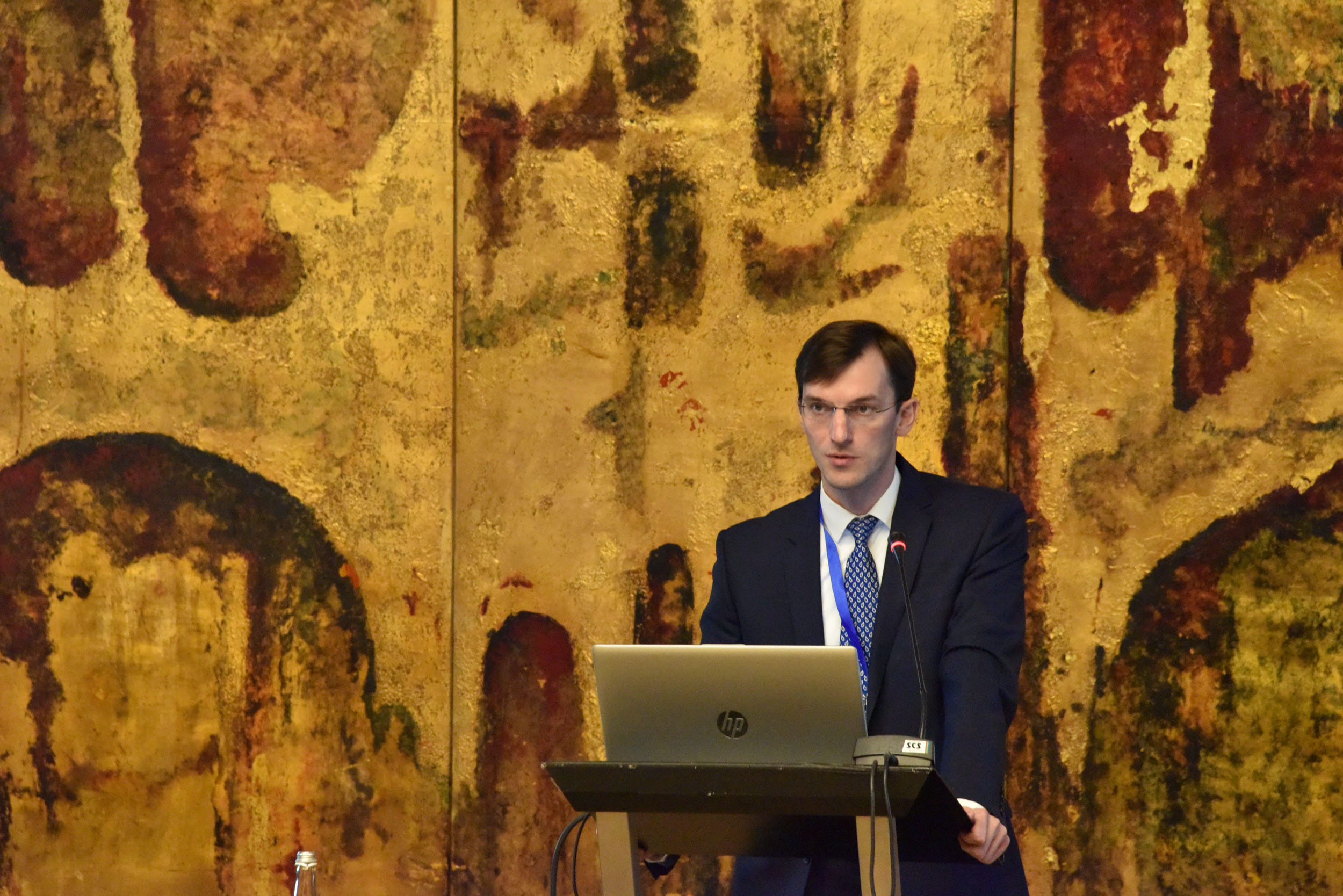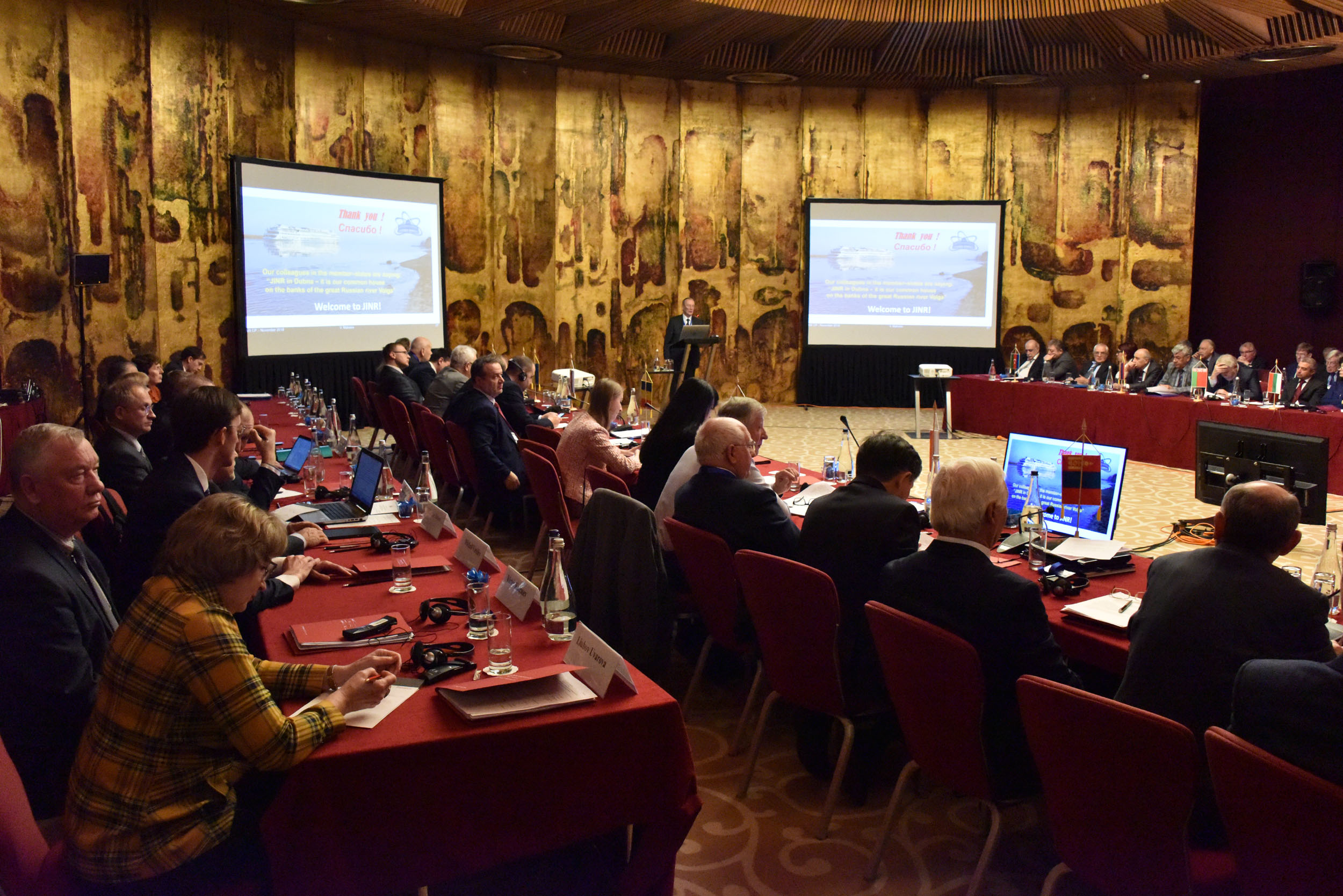From the CP Session
Organization, 27 November 2018
JINR – Romania: an important step in cooperation development
JINR Vice-Director, Professor Mikhail Itkis comments on the milestones of the Session of the Committee of Plenipotentiary Representatives of the Governments of the JINR Member States that was held on 19 – 20 November 2018 in Bucharest chaired by G.V. Trubnikov, Plenipotentiary Representative of RF at JINR.
– Mikhail Grigorievich, the first question is what the JINR Directorate aims at regularly holding the CP sessions in the JINR Member States?
– Firstly, our audience expands as far as staff members of ministries and other state departments of the host country take part in sessions jointly with plenipotentiary representatives. Thus, they get involved in taking decisions; realize the importance of the Institute for development of science in their countries and necessity of helping its development for the benefit of all Member States. Secondly, popularization of JINR activities is now of crucial importance, especially in European Member States that are CERN members as well. In this respect, it is important to highlight the interdisciplinary character of research carried out at JINR.
As a rule, CP sessions held in Member States are joined with symposiums dedicated to development of cooperation with the host country, this time with Romania. Such meetings allow carrying out deep and detailed review of the Institute’s activity. At the symposium dedicated to cooperation of JINR with scientific centres of Romania, reports were made by directors of our laboratories, leading Romanian scientists. Participants of the Session expressed gratitude to organizers of the symposium for the perfect organization of the event.
More details are available in a special press release of the JINR Directorate.
The review report of JINR Director, Academician V.A. Matveev sums up the results of the first two years of a new seven-year period of the Institute’s development. Considerable attention of the report was paid to enhancement of cooperation with countries that are not JINR Member States but take an active part in its activities on the basis of associate membership. The Session was attended by our Italian colleagues Aldo Spallone, Scientific Attaché of the Embassy of the Italian Republic in the Russian Federation and his colleagues, as well as Christoph Schäfer, Counsellor on Cooperation with CERN Eastern countries, who highly appreciated the results of and prospects for cooperation with JINR.
– The key issue discussed at the CP Session was the Institute’s budget. Thanks to support of the JINR Member States, it has significantly increased for several past years. What budget was approved for 2019?
– Yes, it was the key issue. I would like to note a very detailed and precise report by Deputy Head of the JINR Finance and Economy Office M.P. Vasiliev “A draft of the JINR budget for 2019 and a draft of contributions of JINR Member States in 2020, 2021, 2022”. As a result, the Committee of Plenipotentiary Representatives approved the budget of JINR for 2019 with the total amount of income and expenses of 112.4 thousand USD. The CP allowed JINR Director to make adjustments to the JINR budget in 2019, including adjustments in the line items on salary and international cooperation in the frames of the approved budget.
– Reports by JINR Vice-Directors V.D. Kekelidze and R. Lednický devoted to the progress in the NICA project were a separate part of the agenda. What is the reason for it?
– It is the major project of the seven-year period of JINR, and it is financed not only on the JINR budget but also on targeted funds of the Russian Federation allocated in accordance with the agreement between the RF Government and JINR on the establishment and operation of the Complex of Superconducting Rings for Heavy Ion Colliding Beams NICA. The main question considered by the speakers was whether conducted work meets the planned deadlines of the construction of the facility’s objects. According to some objective reasons, we are in for a small retardation. Chairman of the Session G.V. Trubnikov noted that this project is under careful attention of the Russian government that has allocated funds, and it is necessary to reduce this retardation. Director of the audit company “Korsakov and Partners” D.A. Korsakov noted in his report that the Directorate and corresponding offices of the Institute had become more attentive to comments of auditors and started to take them into account in the every-day work.
Participants of the Session met the report “Major trends, challenges and prospects in development of information technologies” by LIT Director V.V. Korenkov with a vivid interest and gratitude. During the discussion of the report, opinions were expressed that the Laboratory not only actively develops the JINR computational complex but also actively contributes to development of cloud calculations and other information technologies in the JINR Member States.
– Following the tradition, the CP session was preceded by the meeting of the JINR Finance Committee that was held in Bucharest chaired by S. Harizanova from Bulgaria. Were there any peculiarities in its agenda?
– Yes, in addition to financial issues and adjustments to the JINR documents, the agenda of the meeting included the report by JINR Chief Engineer B.N. Gikal for the first time. The report was met with a great interest by financial experts of the Member States.
The agenda of the CP Session comprised the report by Head of the JINR International Cooperation Department D.V. Kamanin devoted to the status of agreements with Associate Members, drafting of agreements with France and other states. As a result, the Committee approved the efforts of the JINR Directorate on promotion of the status of the Arab Republic of Egypt, the Republic of Serbia, and the Republic of South Africa to full Member States of JINR. The Committee also approved work on preparation of the agreement on cooperation with the government of the French Republic.
– Were there discussions?
– In general, the Session was held in a spirit of unity: there was a consensus on evaluation of conducted work, strengthening of international cooperation, and plans. The Institute’s budget has been fully approved. However, some new offers were discussed. In particular, to the March Session of the CP, the working group under CP Chairman will prepare a new edition of the Regulation for the JINR staff, work on the Regulation for admission of scholarship holders (postdocs) is underway, and the grant system of the Member States is developed. These and other issues were discussed at the Session.
– What was offered in the social programme?
– Social programme comprised acquaintance with palaces of Romanian kings that are now museums with rich collections, as well as acquaintance with pieces of art in the Romanian Parliament. The social programme was perfectly organized by our Romanian colleagues, and we cordially thank them for their warm hospitality.
The interview was conducted by Evgeny Molchanov, the JINR Weekly Newspaper
Photos © The CP organizing committee from Romania
